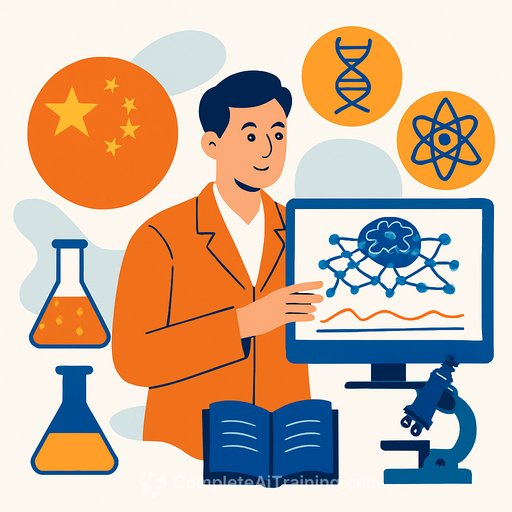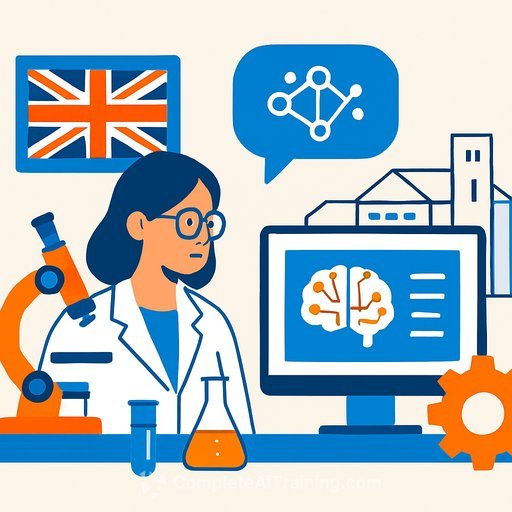China Launches ScienceOne AI Model to Accelerate Scientific Research
The Chinese Academy of Sciences (CAS) introduced the ScienceOne model at the 2025 World Artificial Intelligence Conference, marking a major step forward in AI-powered scientific innovation.
ScienceOne is engineered to interpret complex scientific data such as waveforms, spectra, and fields. It combines literature extraction, knowledge reasoning, and tool orchestration, creating a versatile platform to support technological advances across multiple disciplines.
Addressing Limitations in Current AI Research Tools
Current AI research tools mainly enhance general-purpose models with domain-specific data or develop isolated tools for single fields. This approach faces three main challenges:
- Fragmented scientific data systems
- Limited specialized reasoning abilities
- Closed research ecosystems
ScienceOne was developed to overcome these constraints. Twelve CAS institutes collaborated on the project, including the Institute of Automation, Computer Network Information Center, National Science Library, Academy of Mathematics and Systems Science, and Institute of High Energy Physics.
Key Features and Capabilities of ScienceOne
The model offers a comprehensive grasp of diverse scientific data types and integrates essential functions such as literature extraction and computational tool coordination. It enables researchers to incorporate AI smoothly into different stages of their work.
Built on China’s open-source foundation models with deep scientific customization, ScienceOne combines proprietary models for common data types with specialized tools like AlphaFold and MatterGen. It covers core principles and laws across mathematics, physics, chemistry, astronomy, earth science, and biology.
Performance evaluations show ScienceOne leading in mathematics, physics, chemistry, materials science, and biology. It also excels in scientific tool invocation and reasoning, with strong results in the Humanity's Last Exam (HLE).
Scientific Intelligent Agents Powered by ScienceOne
From ScienceOne, two intelligent agents were created to support research workflows:
- Article Review Agent: Assists with reading scientific papers, writing reviews, and evaluating research directions. It has access to 170 million scientific documents and real-time open-source information, reducing literature review times from days to about 20 minutes.
- Tool Orchestration Agent: Simplifies the use of over 300 scientific computing tools by autonomously planning and scheduling the most effective tools for given research tasks, improving efficiency.
Applications Across Scientific Fields
ScienceOne is already applied in multiple disciplines:
- Automating biological target identification on the X-Cell digital cell platform
- Enhancing particle simulation efficiency at the Beijing Electron-Positron Collider
- Improving molecular prediction accuracy in chemistry
- Streamlining global telescope coordination in astronomy
- Supporting structural design innovation for high-speed rail systems
Additionally, this AI breakthrough contributes to advances such as early cancer detection, promising practical benefits for healthcare.
For researchers interested in expanding AI skills applicable to scientific research, explore tailored courses and resources at Complete AI Training.
Your membership also unlocks:






